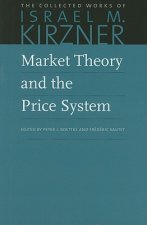
Kód: 04688015
Managing Conflict in Economic Convergence of Regions in Greater Europe
Autor Frederic Carluer, Frederic Carluer, Manas Chatterji
Today, Europe is facing a political crisis because it has not solved a double dilemma. The first one is institutional and concerns the frontiers of the Union and thus the number of potential regions. The second one is economic, an ... celý popis
- Jazyk:
 Angličtina
Angličtina - Vazba: Pevná
- Počet stran: 324
Nakladatelství: Emerald Publishing Limited, 2007
- Více informací o knize

5753 Kč

Skladem u dodavatele v malém množství
Odesíláme za 12-17 dnů
Potřebujete více kusů?Máte-li zájem o více kusů, prověřte, prosím, nejprve dostupnost titulu na naši zákaznické podpoře.
Přidat mezi přání
Darujte tuto knihu ještě dnes
- Objednejte knihu a zvolte Zaslat jako dárek.
- Obratem obdržíte darovací poukaz na knihu, který můžete ihned předat obdarovanému.
- Knihu zašleme na adresu obdarovaného, o nic se nestaráte.
Více informací o knize Managing Conflict in Economic Convergence of Regions in Greater Europe
Nákupem získáte 575 bodů
 Anotace knihy
Anotace knihy
Today, Europe is facing a political crisis because it has not solved a double dilemma. The first one is institutional and concerns the frontiers of the Union and thus the number of potential regions. The second one is economic, and makes it necessary to choose between, on the one hand, the need to strengthen the European growth poles (especially the metropolitan regions) in order to compete successfully with the Triad and the Asiatic countries and, on the other, the obligation to ensure harmonious development and to distribute the structural funds more evenly or even to concentrate them in the Eastern countries and the less favoured regions characterized by atonic growth. In other words, the choice facing the European Commission reflects the crucial dilemma between size and integration and between equity and growth. In terms of territorial prospective and management, four main scenarios must be compared and their impacts must be estimated: the strengthening of concentration, the diffused metropolization, the increase of regional inequalities and the polycentrism. This is the main reason why the question of European regional convergence is now attracting considerable attention, since polarization phenomena and specific regional trajectories are challenging the hypothesis of automatic catch-up within the European Union over nearly two decades. This interest is further compounded by the huge challenge of integrating the ten new Eastern countries, two other candidates in 2007 (Bulgaria and Romania) and probably several other ones in the near future (especially Croatia, but also Moldavia and Ukraine and, perhaps, Turkey). For regional policy-makers, the main concern is to make monetary integration successful, to moderate the divergent forces and to stimulate the lagging territories. This study of spatial convergence is very interesting, because it combines theoretical openness, access to recent statistical databases (REGIO) and the use of mathematical applications (Markov chains, Generalized Moments method), together with the possibility of conducting empirical tests leading to a new analysis of decentralization policies and to the characterization of new growth factors and new locational strategies. All these methods are used to analyze the empirical reality of the European convergence process, for Western European countries and Eastern ones successively. A final chapter on the regional dynamics in Ukraine and Russia is also added. The results show a strong diversity of regional evolutions at an aggregate level and specific spatial dynamics at a sectoral level. The role of agglomeration economies (density, regional capitals) and spatial externalities (diffusive growth), especially through autocorrelation tests and fixed effects analysis, as well as the importance of regional specialization and of metropolarization are confirmed. To sum up, the main finding of this book is the coexistence of national convergence and regional divergence for the Western countries and the converse for the Eastern ones. All these empirical results shed light on the relevance of new economic geography, the need to distinguish spatial and institutional hierarchies and give some appropriate strategies to policymakers. The questions of the quality of the integration and the prospect of further enlargement of the European Union to the East (up to the Urals frontier) highlighted by these empirical findings demand ingenious political management in order to reconcile regional diversity (and especially the fact that a moderate level of inequalities could stimulate global growth) and the European project itself (not only the economic aspects but also the political and cultural aspects). To conclude, the main question is whether the European Union has the means to play on different fields (geographic size, cultural mix and above all distribution of structural funds) without threatening its long-term growth and diluting its economic culture (and its social cohesion) in the face of globalization.
 Parametry knihy
Parametry knihy
Zařazení knihy Knihy v angličtině Economics, finance, business & management Economics Economic theory & philosophy
5753 Kč
- Plný název: Managing Conflict in Economic Convergence of Regions in Greater Europe
- Autor: Frederic Carluer, Frederic Carluer, Manas Chatterji
- Jazyk:
 Angličtina
Angličtina - Vazba: Pevná
- Počet stran: 324
- EAN: 9780762313570
- ISBN: 0762313579
- ID: 04688015
- Nakladatelství: Emerald Publishing Limited
- Hmotnost: 631 g
- Rozměry: 234 × 156 × 19 mm
- Datum vydání: 01. May 2007
Oblíbené z jiného soudku
-

Wealth of Nations
136 Kč -

Why Women Have Better Sex Under Socialism
306 Kč -

Book of Satoshi
492 Kč -

Inquiry into the Nature and Causes of the Wealth of Nations
744 Kč -

Bourgeois Virtues
1386 Kč -

Wealth of Nations
330 Kč -

Inquiry into the Nature and Causes of the Wealth of Nations
286 Kč -

Seventeen Contradictions and the End of Capitalism
254 Kč -

Principles of Economics
594 Kč -

General Theory of Employment, Interest and Money
529 Kč -

Market Theory & the Price System
563 Kč -

Legalized Crime of Banking
594 Kč -

Basic Economics
840 Kč -

Worldly Philosophers
303 Kč -

Essential Keynes
357 Kč -

Doughnut Economics
338 Kč -

Human Action (4-Volume Set)
938 Kč -

New Economics for Industry, Government, Education
1034 Kč -

Naked Economics
381 Kč -

General Theory of Employment, Interest and Money
397 Kč -

Keynes Hayek
415 Kč -

Capitalism: A Very Short Introduction
211 Kč -

Origin Of Wealth
303 Kč -

Oxford Handbook of Law and Economics
1551 Kč -

Pure Theory of Capital
355 Kč -

Keynes
303 Kč -

OPEC and the Price of Petroleum
1681 Kč -

Contra Keynes & Cambridge
420 Kč -

Economics Book
615 Kč -

Book of Satoshi
815 Kč -

Expectations and the Meaning of Institutions
2123 Kč -

Reflections on Ethics, Freedom, Welfare Economics, Policy, and the Legacy of Austrian Economics
563 Kč -

Essence of Entrepreneurship and the Nature and Significance of Market Process
542 Kč -

Cultural Considerations within Austrian Economics
679 Kč -

Fortunes of Liberalism
361 Kč -

Epistemological Problems of Economics
340 Kč -

Keynesian Episode
355 Kč -

Four
234 Kč -

Economics of Good and Evil
675 Kč -

Happiness
303 Kč -

Wealth of Nations
320 Kč -

Constitution of Liberty
701 Kč -

Economics for the Common Good
443 Kč -

Wealth of Nations
611 Kč -

Mathematics for Economics and Finance
1434 Kč -

What the Dog Saw
234 Kč -

Technological Revolutions and Financial Capital
1025 Kč -

Kicking Away the Ladder
587 Kč -

Thomas Piketty's 'Capital in the Twenty-First Century'
633 Kč
Osobní odběr Praha, Brno a 12903 dalších
Copyright ©2008-24 nejlevnejsi-knihy.cz Všechna práva vyhrazenaSoukromíCookies


 Vrácení do měsíce
Vrácení do měsíce 571 999 099 (8-15.30h)
571 999 099 (8-15.30h)